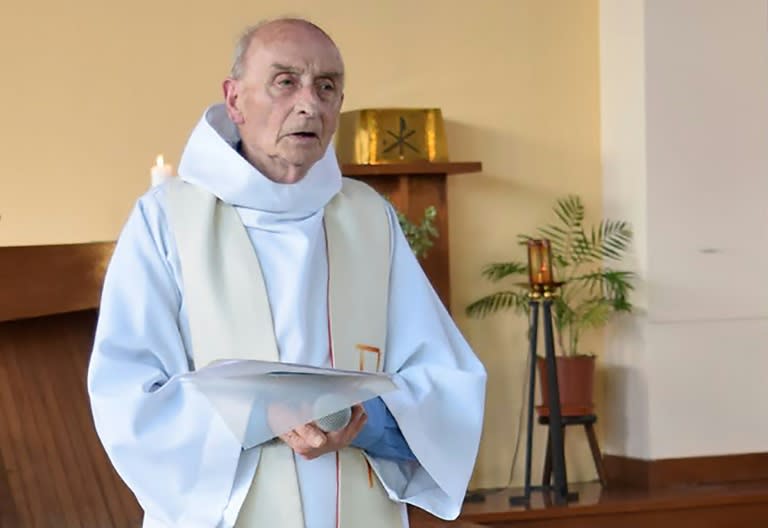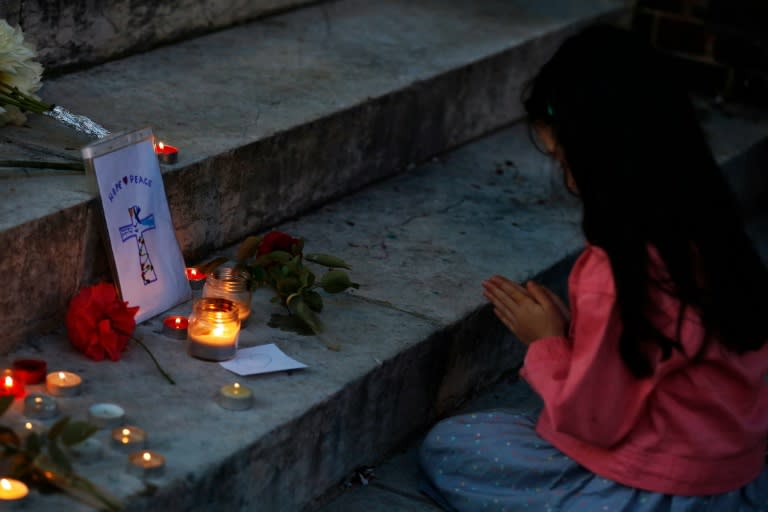'Unthinkable' that jihadists could hit small Normandy town
No one in this small Normandy town could have imagined that one day they too would be the target of a jihadi attack, let alone Tuesday's knife murder of an elderly priest celebrating mass. "He baptised my three children," said widower Claude Godfroy, 86. "We were about the same age," he said of Father Jacques Hamel, who presided over the funeral for Godfroy's wife six years ago at the centuries-old stone church in Saint-Etienne-du-Rouvray. Godfroy was among a handful of residents out of doors after the attack, with the streets deserted and shops shuttered under a grey sky. Outside Saint-Etienne's town hall a stone's throw from the church, 22-year-old Joanna Torrent said she could not imagine "who did this and why" when she first heard of the attack, in which a worshipper was also seriously wounded. As details emerged about the two assailants, like many other residents, she could not fathom how an Islamic State group attack could occur in her hometown of 29,000. "I thought it would only be in big cities, that it couldn't reach here," she said as France was still reeling from the Bastille Day truck rampage that killed 84 people in the French Riviera city of Nice. That was the third major attack on France in 18 months, following the November 13 and January 7, 2015, onslaughts in Paris that together claimed 147 lives. - Attacks 'could snowball' - On Tuesday, as elite police raided the church where the jihadists were holding hostages, the sound of their gunshots reached the funeral home Pascal Quilan runs down the street from the church. "We never thought it could happen in a little town like this, especially not in a church," said Quilan, 53. "It's unthinkable." Another resident could not accept that the slaying was the work of IS, even after hearing French President Francois Hollande announce the news standing outside the Saint-Etienne town hall. "Why this city? A little town in Normandy?" she asked, declining to give her name. "I doubt it's Daesh," she said, using an alternate name for IS. When Frederic Humbert, 31, heard the shots and saw police cars speeding past him while he was washing his car, he thought some kind of training exercise was taking place. "It's unfortunate, discouraging to see attacks all around the world, (but) a shock and a bit bizarre" that one occurred in Saint-Etienne, he said. Luce Pane, a lawmaker who represents the town in the French parliament, cut short her holiday to "show solidarity" with her constituents, she said. Unlike some of her Saint-Etienne constituents, she sees that because IS "cultivates hatred", an attack "can happen in places that are not as famous as Paris and Nice." Alexandre Joly, a priest from a neighbouring parish, said there was widespread "incomprehension" over such an indiscriminate attack. "The Christian community is very affected. The mass is the strongest moment (of the Christian faith), so obviously it's a very strong symbol." He described Hamel as "very gentle", a priest who wished to serve until the end of his days. Quilan, the funeral director, said Hamel was a "man of faith par excellence". Incredulous that jihadists could have murdered him in "a little town like this", Quilan said he feared such attacks "could snowball".




